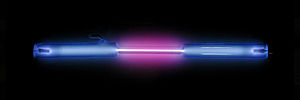Schikorr reaction formally describes the conversion of the iron(II) hydroxide (Fe(OH)2) into iron(II,III) oxide (Fe3O4). This transformation reaction...
15 KB (1,589 words) - 05:02, 4 March 2024
Iron(II,III) oxide (section Reactions)
magnetite and molecular hydrogen. This process is described by the Schikorr reaction: 3 Fe ( OH ) 2 ferrous hydroxide ⟶ Fe 3 O 4 magnetite + H 2 hydrogen...
23 KB (2,169 words) - 13:28, 16 September 2024
Iron(II) hydroxide (section Preparation and reactions)
III) oxide) and molecular hydrogen. This process is described by the Schikorr reaction: 3 Fe(OH)2 → Fe3O4 + H2 + 2 H2O Anions such as selenite and selenate...
7 KB (661 words) - 07:40, 27 August 2024
brucite, that is, brucite containing Fe(OH)2, which then undergoes the Schikorr reaction in the anaerobic conditions of serpentinization: Maximum reducing...
30 KB (3,139 words) - 03:37, 13 November 2024
-> 2 Fe3O4 + 3 SiO2 + 2 H2}}} This reaction closely resembles the Schikorr reaction also producing hydrogen gas by oxidation of Fe2+ ions into Fe3+ ions...
26 KB (2,619 words) - 00:10, 28 October 2024
radioactive waste repository Nuclear decommissioning Schacht Konrad Schikorr reaction Waste Isolation Pilot Plant Herrmann, Albert Günter; Röthemeyer, Helmut...
23 KB (2,500 words) - 13:13, 24 April 2024
Hydrogen (section Biological reactions)
water to form magnetite and H2. This process is described by the Schikorr reaction: 3 Fe(OH)2 → Fe3O4 + 2 H2O + H2 This process occurs during the anaerobic...
121 KB (12,377 words) - 14:27, 16 September 2024
water to form the mineral magnetite (Fe3O4) in the process called the Schikorr reaction. In general, the anaerobic corrosion of metals, such as iron and copper...
5 KB (610 words) - 17:16, 21 February 2023








